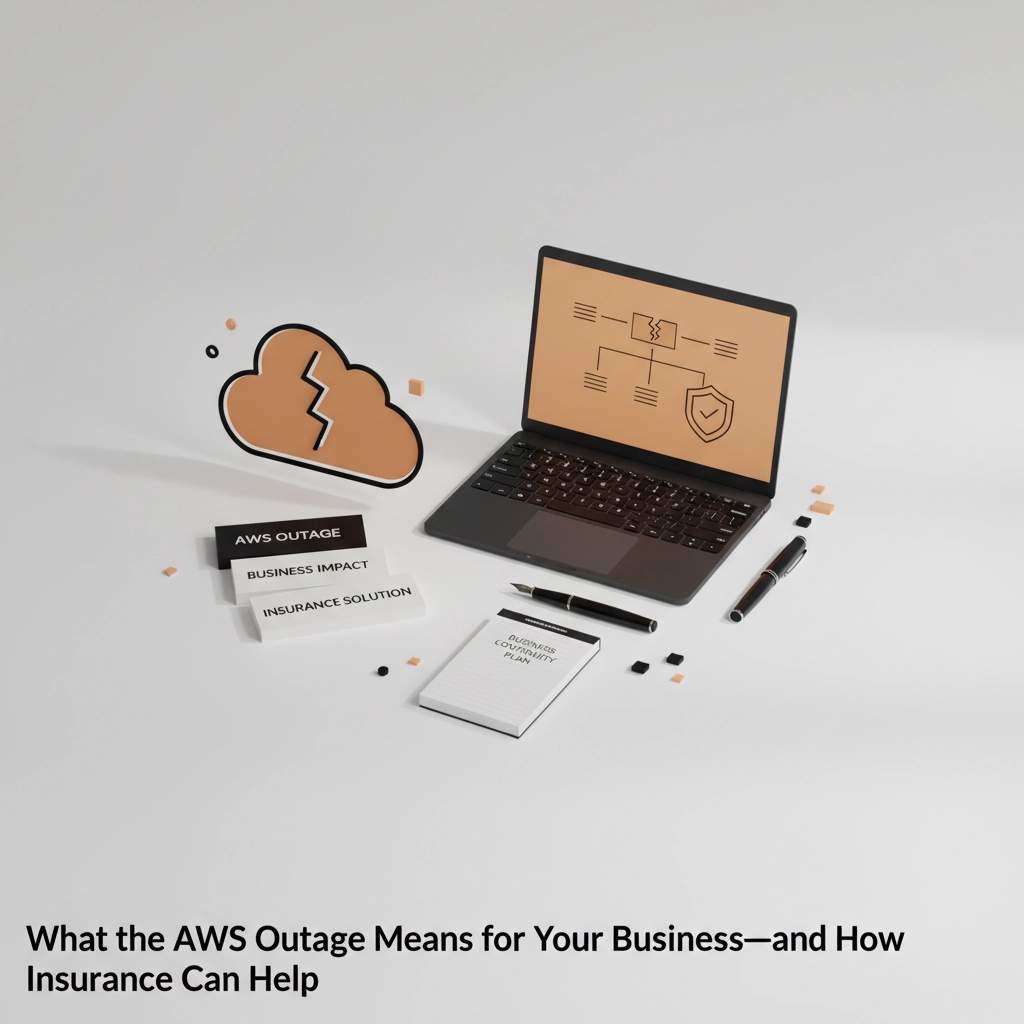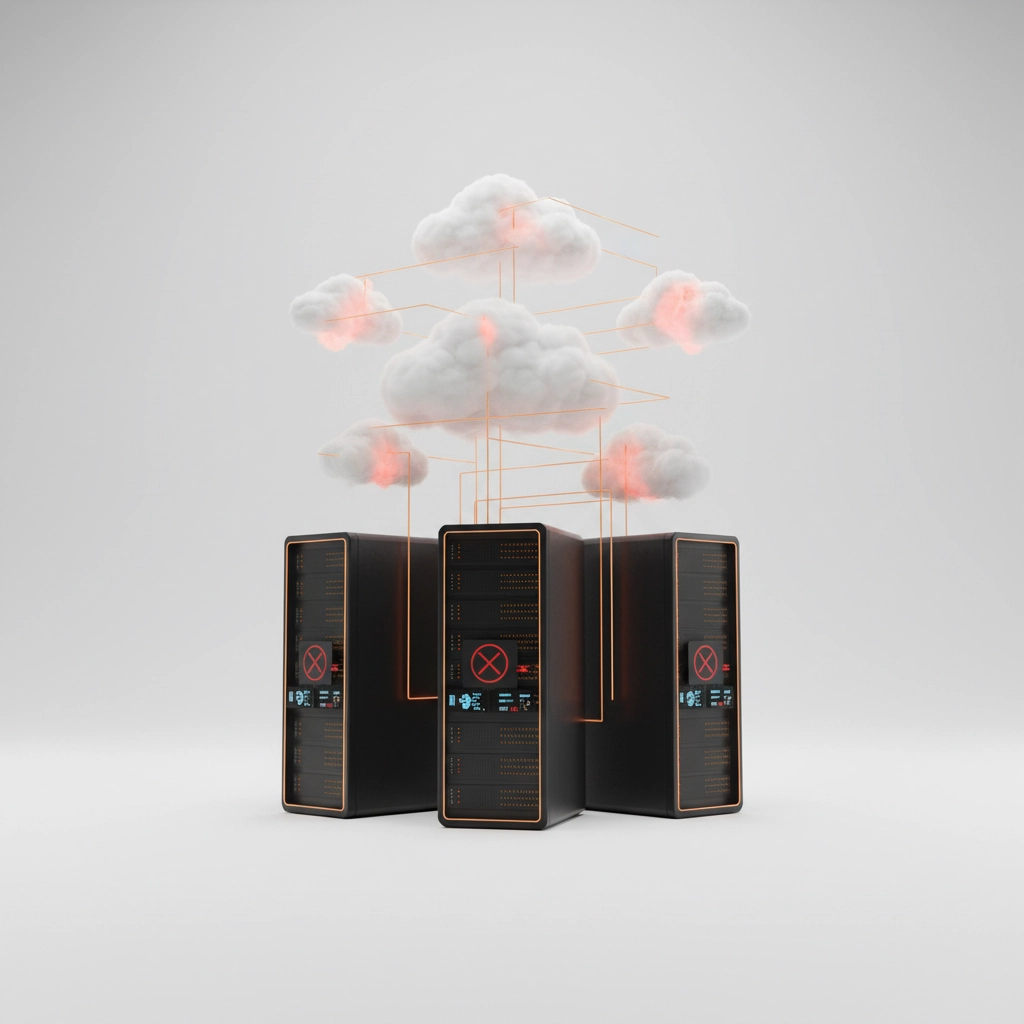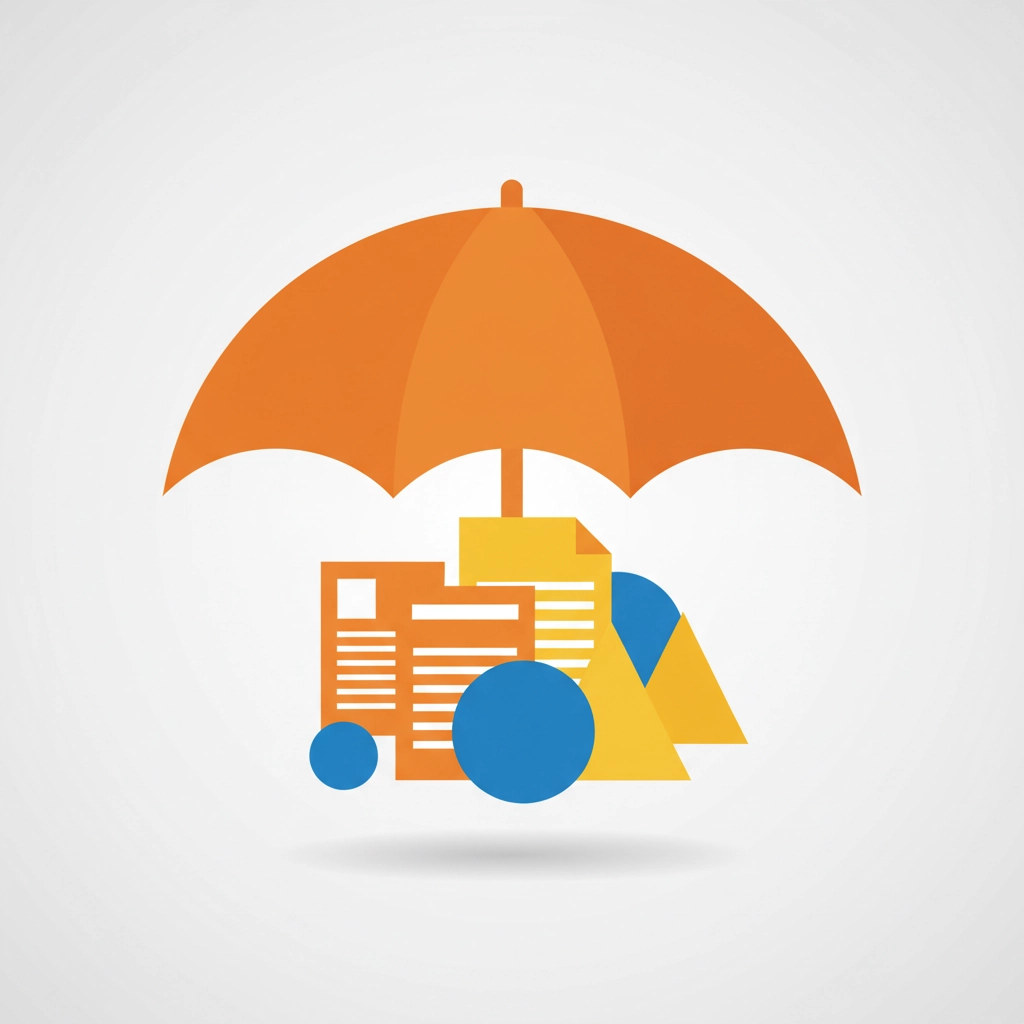Adams & Associates - Learn with Us
What the AWS Outage Means for Your Business: and How Insurance Can Help

Early this morning, Amazon Web Services experienced a major outage that brought down some of the internet's biggest platforms. Snapchat, Fortnite, Coinbase, Zoom, and dozens of other services went dark around 2:50 AM Eastern time when AWS hit a DNS issue in their US-EAST-1 region.
If you woke up to find your business systems weren't working properly, you weren't alone. This outage is affecting millions of businesses worldwide: and it's a wake-up call about how much we all depend on cloud services.

Why This Matters for Every Business
You might think, "I'm not a tech company, so this doesn't affect me." But here's the reality: if your business uses cloud-based software, email platforms, payment processing, or even social media for marketing, you're vulnerable to these outages too.
Your daily operations can stop instantly. When AWS goes down, it's not just gaming platforms that suffer. Businesses lose access to:
• Customer databases and CRM systems • Email and communication tools • Payment processing platforms • Inventory management systems • Employee productivity software • Website hosting and e-commerce platforms
Revenue losses add up fast. Every hour your systems are down means:
• Lost sales from customers who can't complete purchases • Employees who can't access the tools they need to work • Customer service teams unable to help clients • Missed deadlines and project delays
Your reputation takes a hit. Customers expect your services to work 24/7. When they can't access your website, complete a purchase, or get support, they start looking elsewhere.
The Real Cost of Cloud Dependency
Here's what business owners often don't realize: moving to the cloud saves money and increases efficiency, but it also creates new risks. You're trading direct control over your technology for dependence on someone else's infrastructure.
Today's outage shows just how concentrated our digital world has become. One region in Virginia goes down, and businesses across the globe feel the impact immediately.
The ripple effect is massive. When AWS struggles, it doesn't just affect the companies directly using their services. It impacts:
• Third-party software that relies on AWS • Mobile apps that store data in the cloud • Payment processors and financial services • Supply chain management systems • Communication platforms your team depends on
How Insurance Can Protect Your Business
The good news? There are insurance options designed specifically for these modern business risks. Let's break down what's available and how it works.

Business Interruption Insurance
Traditional business interruption coverage helps when physical damage stops your operations. But many policies now include coverage for technology failures and cyber incidents that disrupt your business.
What it covers: • Lost income during downtime periods • Ongoing expenses you still have to pay (rent, salaries, loan payments) • Extra costs to maintain operations during recovery
What to look for: Make sure your policy covers interruptions from third-party service providers, not just direct damage to your own systems.
Contingent Business Interruption
This coverage kicks in when your business is disrupted by problems at companies you depend on: like cloud service providers, suppliers, or key customers.
Why it matters: When AWS goes down and takes your systems with it, contingent business interruption can cover your lost revenue and extra expenses during the outage.
Cyber Liability Insurance
While today's outage wasn't a cyberattack, cyber policies often include coverage for system failures and data loss incidents.
Key benefits: • Data recovery costs • Business income protection during cyber incidents • Customer notification expenses • Legal fees from privacy violations
Technology Errors & Omissions (E&O)
If your business provides technology services or relies heavily on tech platforms, E&O coverage protects against claims that your failure to deliver services caused someone else financial harm.

What You Should Do Right Now
Don't wait for the next outage to think about these risks. Here are practical steps you can take today:
Review Your Current Coverage
Call your insurance agent and ask: • Does my business interruption policy cover third-party service failures? • What's the waiting period before coverage kicks in? • Are there specific exclusions for cloud service outages? • Do I have contingent business interruption coverage?
Document Your Cloud Dependencies
Make a list of all cloud services your business uses: • Email platforms (Gmail, Outlook 365) • File storage and sharing (Dropbox, Google Drive) • Customer management systems • Accounting software • E-commerce platforms • Communication tools (Slack, Teams, Zoom)
For each service, note: • How critical it is to daily operations • What it would cost you per hour/day if it went down • Whether you have any backup options
Build Redundancy Into Your Operations
Smart backup strategies include: • Using multiple cloud providers for different functions • Keeping local copies of critical data • Having offline alternatives for essential processes • Training staff on backup procedures
Communication backup plans: • Alternative ways to reach customers during outages • Internal communication methods that don't rely on your primary platform • Pre-written messages explaining service disruptions

Questions About Your Coverage?
Every business is different, and your insurance needs depend on how much you rely on cloud services and what kind of revenue you could lose during an outage.
Consider these factors: • How long could your business operate without cloud access? • What's your average daily revenue? • Do you have contractual obligations that require system uptime? • How quickly could you switch to backup systems?
The answers help determine how much coverage you need and what type of policy makes the most sense.
Moving Forward
Today's AWS outage is a reminder that modern business risks require modern insurance solutions. The old model of just protecting against fire, theft, and natural disasters isn't enough anymore.
The key is balance. You don't want to over-insure against unlikely events, but you also can't ignore the reality that cloud outages happen regularly and can cost your business real money.
Smart risk management combines: • Appropriate insurance coverage for your cloud dependencies • Operational redundancy to minimize downtime • Clear communication plans for when things go wrong • Regular reviews of your technology risks and insurance needs
As we become more dependent on cloud services, these types of outages will likely become more disruptive, not less. The businesses that prepare now will be the ones that weather the next storm successfully.

Don't let the next cloud outage catch you unprepared. Take time this week to review your coverage, document your dependencies, and make sure you're protected against the technology risks that could shut down your business overnight.
Your future self will thank you when the next outage hits and you're covered instead of scrambling.










